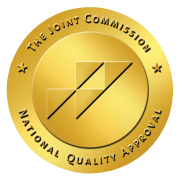Is My Mental Health Declining?
It happens all the time. A person is living their life. Nothing drastic changes. Maybe a series of difficulties have come, but that is life. But things seem harder. Some describe it as exhaustion. A loss of the zeal. A sadness that seems to stick around. Maybe it’s working long hours and prioritizing career over well-being. Often feeling stressed and anxious. Sure, these things can all be part of normal life, but what happens when they are more? How do we know if this is just a phase or if we need to ask the question: Is my mental health declining?
Mental Health: A Universal Concern
Mental health is something that everyone should be concerned about. Mental health problems can creep up slowly. Psychological issues require treatment at an early stage before they worsen.
Though you will want to see a specialist to get a true diagnosis, there are some common signs that let you know if your mental health is more than a side effect of normal life.
-
Sleep Changes
Sleep patterns can be a sign of declining mental health. While it’s normal to experience occasional disruptions, is your sleep issue occasional or persistent? Do you have difficulty falling asleep or staying asleep? Clinical depression can cause insomnia, where an individual has difficulty falling or staying asleep, or hypersomnia, where they may sleep for extended periods. Anxiety can have similar effects. Bipolar disorder and PTSD also carry sleep issues that could be underlying signs to reach out for help.
-
Mood changes
Do you feel sometimes up and sometimes down? Or do you feel constantly short-tempered, anxious, restless, emotional, and more sensitive than usual? The important thing to remember with mood changes is that everyone has ups and downs. We might feel happy because work went well, or sad because an argument with a loved one. The question is are the mood changes persistent, intense, and interfering with daily functioning?
If you feel one or more of these, then your mental health may be the issue.
-
Behavioral changes
If you have stopped meeting friends or socializing, not communicating with your family and just want to be alone always, you may feel disconnected from reality. On an occasional basis, this may be just a time-out that you want. Regularly it can be a major symptom of worsening mental health.
-
Don’t experience joy or happiness
Being sad always, and not being able to feel joy or happiness in activities or situations that earlier you used to enjoy can be signs of mental health issues. Anhedonia, the medical term for the inability to experience pleasure or interest in things that were previously enjoyable, is a common symptom of depression and other mental health conditions. You may feel emotionally flat, numb, or disconnected from the things they once enjoyed. You may also struggle to find motivation or interest in activities you once loved. This also creates a cycle. These activities can also alleviate depression, and that lack of them could lead to despair. If nothing cheers you up and makes you happy, then you may want to reach out for help.
What to Do About Declining Mental Health
If you think your mental health is declining, that you are experiencing signs that are persistent, reach out to someone for support. Talk to a trusted friend, family member, or mental health professional about what you’re going through. They can provide a listening ear, offer practical advice, and help you identify the next steps to take. Our team here at Lido Wellness Center is available to hear what you are going through. We work with patients every day that are working through a decline in mental health and are finding a path to wellness.




